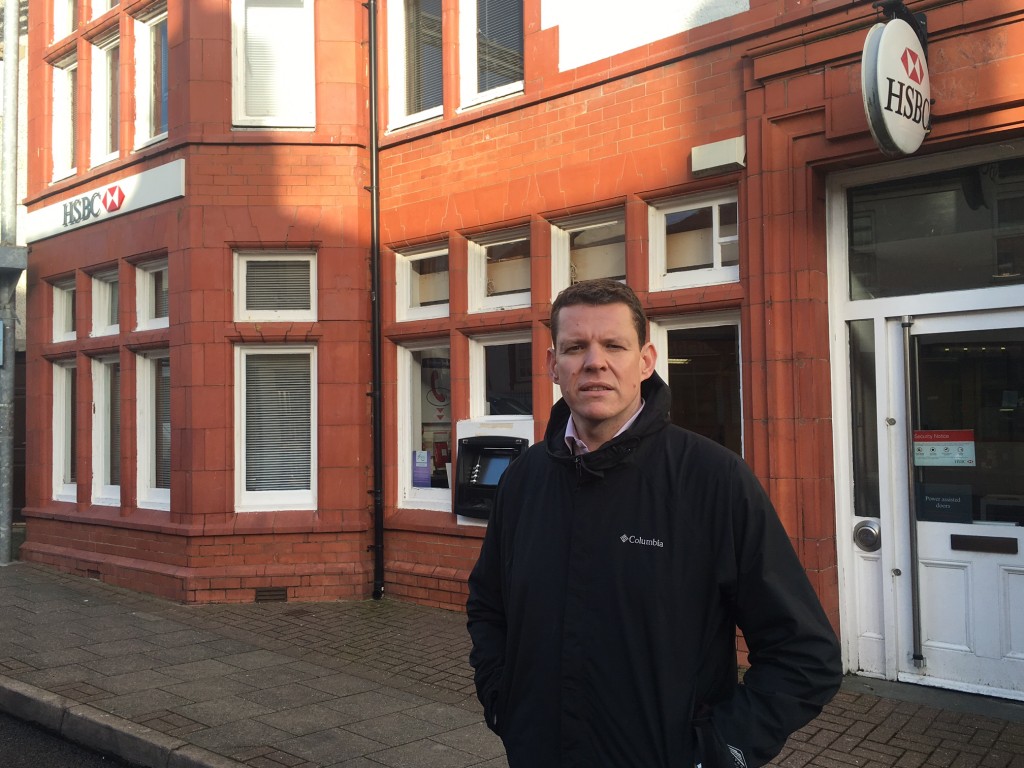In a debate in the National Assembly for Wales on bank closures, Ynys M├┤n AM Rhun ap Iorwerth talked of the two local examples in Amlwch and Menai Bridge and argued that banks should give full consideration to the impact of their decisions on communities.
The full text of RhunŌĆÖs speech in the Senedd:
Losing a local bank is a huge blow to any community. At best, perhaps, it can mean that one has to change bank accounts to another branch down the road. At worst, and far too often, the reality is, of course, that the bank to close is the very last bank in that community,
The two examples I have from my own constituency are Menai Bridge and Amlwch. Menai Bridge is a prosperous town, full of economic activity, and it makes no sense whatsoever to anyone looking from the outside why HSBC would intend to close that branch, particularly given that itŌĆÖs only a year or two since the branch in Beaumaris closed, and the customers of that bank were told at that point, ŌĆśDonŌĆÖt worry, you can go to Menai Bridge to do your banking.ŌĆÖ Now, in Amlwch the branch there is closing. Amlwch is a town thatŌĆÖs going to be at the heart of great economic activity over the next decade, yet it is clear that they are not looking to the future at all in terms of the bank in Amlwch. What have customers been told? ŌĆśDonŌĆÖt worry, you can actually do your banking in the post office.ŌĆÖ But we know that there is uncertainty about the future of the post office in Amlwch, and we know of too many communities in Wales where the post office has also been lost.
We know that this, according to the banks, is driven by changes in our own banking practices, and, of course, we, each and every one of us in this Chamber, IŌĆÖm sure, are doing more of our banking online and so on. But the decision to close these branches is happening at a time when our communities, generally speaking, arenŌĆÖt ready to say, ŌĆśYes, we are communities that do all of our banking onlineŌĆÖ. There are too many vulnerable and older people in our communities who arenŌĆÖt ready to participate in this modern online banking age. Also, we regularly in this Chamber talk of problems in relation to broadband in our rural areas. There are too many areas that donŌĆÖt have the necessary digital infrastructure to enable them to fully participate in online banking.
What the banks say, of course, is that these branches arenŌĆÖt profitable. IŌĆÖm sure that theyŌĆÖre right in terms of the branches themselves. IŌĆÖll refer to a paper published by the Competition and Markets Authority in August of last year as part of an inquiry into retail banking:
ŌĆśthe ŌĆ£retail bankingŌĆØ divisions constituted an important source of income for the five largest UK banks. In 2014, these banks on an average, derived close to 60% of their total revenues from the retail divisions. The retail banking divisions across the five banks reported a total income of ┬Ż42.1 billion and profit before tax of ┬Ż14.2 billion in 2014. Figures…show that, while total reported income of the banks has remained relatively stable between 2012 and 2014, the reported profit has, in general, shown an upward trend during this periodŌĆÖ
The banks are profiting from their retail banking. What should happen is that the banks operate as a network, with profitable branches assisting, in turn, to maintain the less profitable branches, in a way that regulation certainly happens with the private mobile phone market, for exampleŌĆöthe masts in Anglesey donŌĆÖt make a profit for the telecommunications companies, but as part of the network they do have to provide that wider coverage, of course. So, that is what should happen with the banks, but, clearly, the banks arenŌĆÖt interested in that. So, we must maintain pressure on the banks and on Governments to ensure that full consideration is given by these institutions to the impact of their decisions on communities.
We can make our own efforts to ensure the viability of our high streets, for example, in order to attract more customers to the banks, but, of course, the bank is one of those things that actually makes for a viable high street. We will play our part, of course, to try to ensure that there is footfall through our banks, but the banks do have to consider their responsibility as part, as I say, of a network that serves not just our prosperous and highly populated areas, but also our poorer, rural areas.


